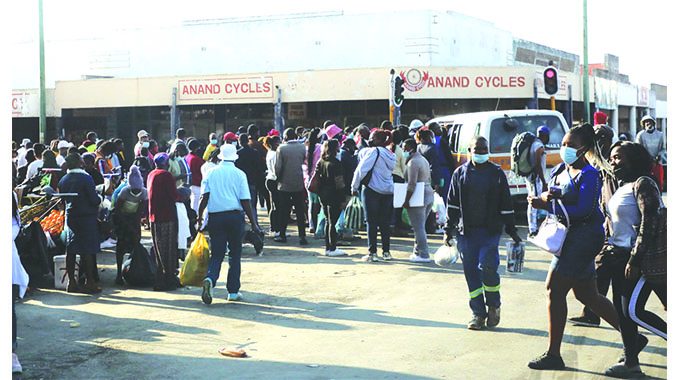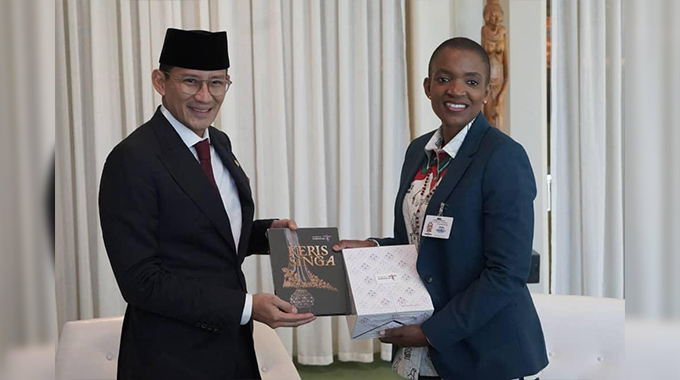Of Gokwe’s cotton, strange stories and child marriages

Michael Magoronga, Midlands Correspondent
Gokwe is popular for two things, cotton growing and strange stories.
The two districts of Gokwe account for 50 percent of the cotton grown in the country and that is attributed to the fast growth of Gokwe town.
It is, however, not everyone who lives in Gokwe who grows cotton, referred to as white gold, who enjoys its economic benefits.
Some people are living lavishly as a result of growing cotton yet others are wallowing in abject poverty despite being cotton farmers.
The rich boast of many cattle and other livestock while others have gone on to marry many wives.
There are individuals who have married many wives in order to have many children to work on the fields.
This has seen old men luring young girls into marriage with the aim of increasing the labour-force for their cotton fields.
There are many stories of underage girls who have eloped with men old enough to be their grandparents.
The desperate girls will be adding to the already long list of the men’s wives and most of the time these women do not enjoy the benefits of working in the cotton fields.
What is more worrying is that in some cases these underage girls are forced into these polygamous marriages by their poor parents.
Authorities in the two districts have since raised a red flag following an upsurge in cases of child marriages and teen pregnancies.
According to statistics gathered by CAMFED through Gokwe North acting District Development Coordinator, Mr Stewart Gwatirinda, by the end of this year’s First School term, 25 girls had dropped out of school and eloped.
The number is likely to increase as more statistics become available when schools open.
Although he could not give exact figures, Mr Gwatirinda said most of the girls are below the age of 16.
He described the situation as “disturbing”.
“The issue of child marriages in Gokwe North District is so rife. What is more worrying is that the girls are falling for elderly men who already have many wives,” said Mr Gwatirinda.
He said cotton farming while playing a huge part in the developing the area, was also doing damage to society.
“We have people who are serious with cotton farming in Gokwe North. Most of them are the ones that are luring young girls into marriage.
In some instances, we also have some families out of poverty, forcing underage girls into marriage in exchange for beasts or groceries,” said Mr Gwatirinda.
Chief Chireya also weighed in saying covid-19 has exacerbated the situation.
“The girls are idle most of the time due to the Covid-19-induced lockdown. This has resulted in most girls choosing to get married as they do not have anything to do. Cotton farming has also seen people having more to spend and they end up luring young girls and impregnating them or marrying them,” said Chief Chireya.
Statistics have shown that Zimbabwe has a 33,7 percent prevalence of child marriages with 5,4 percent of the girls getting married before they reach the age of 15 while two percent of boys in Zimbabwe marry before they reach 18.
Research carried out by Shamwari Yemwanasikana, a civil organisation, revealed that the major drivers of child marriages are forced marriage due to cultural and religious practices, poverty, teenage pregnancies and poor enforcment of laws and policies that protect the girl child.
In the National Baseline Survey on the Life Experiences of Adolescent (NBSLEA) conducted by the Zimbabwe National Statistics Agency (Zimstat), 41 percent of girls reported that their sexual debut before turning 18 years old was not consensual.
Shamwari Yemwanasikana Programmes Co-ordinator, Miss Marjorie Nhamoinesu, said poverty, culture and tradition were the key drivers of child marriages.
She said the situation was not peculiar to Gokwe as Harare and surrounding areas have already recorded 55 cases of child marriages this year.
“The patriarchal nature of Zimbabwean society is also at the centre of this crisis. As families grapple with the stinging effects of Covid-19, girls have become tickets for the next meal for improvised families. Girls are married off or forced into prostitution to earn a living for themselves and their siblings,” said Miss Nhamoinesu.
Zimbabwe National Commission for Welfare of Children director, Reverend Taylor Nyanhete, said parents should play a leading role in educating their own children on sexual reproductive issues.
“Let us engage our children as a society and not wait for teachers to do that. Let us take responsibility for sexual reproductive education for our children as parents. The home environment is always the best for such education. It takes the whole society to raise a child,” said Rev Nyanhete.
Zimbabwe Gender Commission CEO, Mrs Virginia Muwanigwa said it was not only Covid-19 pandemic which was responsible for child marriages.
“It is true that the Covid-19 pandemic to when the society is open and people are able to communicate or report ill doings. The school system has also been disturbed and this has resulted in people lying idle and ending up indulging in sexual activities,” she said.
Mrs Muwanigwa however, said some families were marrying off children out of poverty.
“What these people need to know is that marrying off their children does not solve their poverty. Two years down the line you will find the girl will be returned to her family and she will end up doing worse things,” said Mrs Muwanigwa.
On the issue of religion, she said her commission has since launched investigations into some apostolic sects who are in the habit of marrying underage girls.
“We are happy that some traditional leaders have taken it upon themselves to fight marriages of under-aged girls,” she said.
Mrs Muwanigwa advocated for the speedy adoption of the Marriage Bill into law.
“The constitution is against the practice of child marriages but as long as there is no law punishing offenders, men will continue abusing young girls,” said Mrs Muwanigwa.
Government has made significant strides to address the issue following the approval of the Child Justice Bill by Cabinet in 2020.
Among others, the Bill will provide for legal representation for children and the sentencing options available for children. The Bill also provides for the establishment of child justice committees at national, provincial and district levels that will be mandated with monitoring child justice.
Cabinet also considered and approved the Children’s Amendment Bill, 2021.
Mrs Muwanigwa said the Bill will be amended to align with the 2013 Constitution and incorporate provisions of International Conventions and treaties that Zimbabwe has ratified.
The Bill widens and criminalises instances of child abuse to include allowing a child to reside in or to frequent a brothel; causing the seduction, abduction or commercial sexual exploitation of a child and causing a child to participate in the propagation of child sexual abuse material. The denial of medical treatment or access to medical treatment to a child without reasonable cause will also be criminalised. — @michaelmagoron1











Comments